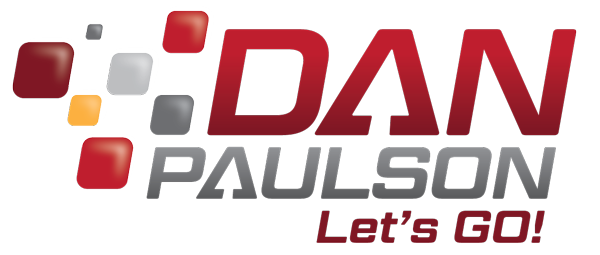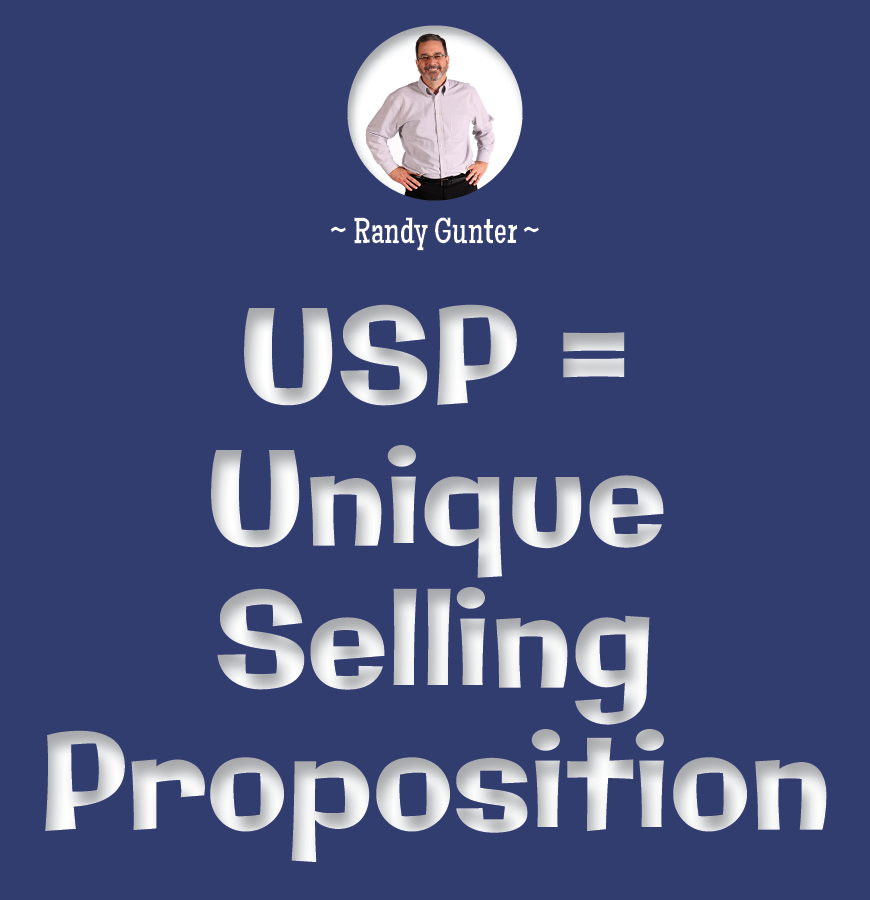By Randy Gunter
Almost every ad agency in the world subscribes to the USP—the Unique Selling Proposition. What they typically tell their clients is we need to find the one thing that makes your company unique in all of the world, and that is the message that we are going to extoll in all of our advertising for you. The idea is that this USP will make you stand out from your competitors and give you the advantage.
There is a huge problem with this scenario: most companies don’t actually have a real unique selling proposition. There are a few…Apple Computers has their retail stores with the Genius Bar and so far they are the only computer company that I know of that offers a service like this; WalMart uses size to their advantage and beats up their suppliers to offer the lowest prices; and cell phone companies come out with new technology temporarily allowing them to offer something unique.
But many companies really don’t offer anything unique. For instance, what is truly unique between insurance companies? They all basically sell the same thing, they all say they have the lowest price (and as we both know, they can’t all have the lowest price), they’re all trusted, etc., etc., etc. So in absence of a real unique selling proposition, they create a unique marketing ploy that gets them remembered. Aflac has its duck, Geico has a gecko, State Farm has it’s actor/spokesperson telling you they have the most customers (which is kind of a USP but really doesn’t translate directly into a benefit for the consumer, so who cares?)
Most soft drinks are all sugar water, nothing unique at all. Applebees, Chilis, TGIFs are pretty interchangeable. There isn’t an automaker that makes any model car that doesn’t have a competitor from a different brand.
So what happens is that instead of actually having a truly unique selling proposition, the marketers create a position. They carve out a piece of the mindset of the consumer and they try to own that piece. Whether it is service, price, quality, whatever. And if they are first to state it and get in the mind of the consumer, or if they simply shout it louder and longer, or are more creative in their message, they carve out a piece of the consumer’s mind to dig into their perceptions. This is different than actually having a true USP, but it works.
So far we’ve talked about national companies. Is this rationale the same for local brands? Actually, the local brands have a disadvantage along with an advantage. The disadvantage is that they probably have less of a chance to be truly unique. The advantage is they don’t have to and they can borrow positioning ideas from others. They can scour the country for similar companies and organizations, take what has been successful and implement it in their own business, and the audience in their market won’t know the difference
Look at the radio industry. They all offer the same thing, they broadcast either talk or music over the airwaves and make money by selling advertising that is also broadcast. Not one of the radio stations is doing anything different than that. What they do though is carve out a position and try to own it in their marketplace. Typically they don’t try to reinvent the wheel. It’s either country, rock, easy listening, sports, or talk. Your local public stations may do classical, and if you live in a bigger market, you may get urban, jazz, and different language stations. The radio stations even borrow names, as you go across the country you will run into multiple Lite101s, or Magic96s, or 97X Rock, etc. Some voiceover talents make a pretty good living simply recording the same style of call letters the same way over and over for different stations across the country.The radio stations have learned that they don’t have to be unique in all of the world, they just have to own their local position. This philosophy can work just fine for practically any other local business. I’m sure that a great marketing concept for a used bookstore in Kalamazoo would probably work just as well for a similar used bookstore in Albuquerque. Or the local YMCA. Or the local bakery. Or the local tax preparer. You get the idea.
What we do as marketers is simple. We provide solutions to problems by using communications tools. I would guess that the person that wants to lose twenty pounds in Jacksonville may have similar needs to a person that wants to lose twenty pounds in Houston. If I have a fantastic marketing program for a weight-loss center in Jacksonville, why couldn’t that also work for the weight-loss center in Houston?
This is the basis for the franchisee system. Many franchisers sell their franchisees a system and the marketing program is an integral component. The idea is that if it works in one part of the country, that same system should work in other parts of the country.
The bottom line is that marketing doesn’t have to be totally unique to work, it just has to be good. You can borrow ideas from one market to another, as long as what you do makes you stand out in your market. (Obviously it wouldn’t make sense to take the same position as the competitor down the street.)
Next time an ad agency tells you that they are looking for your USP, tell them that’s great—If they can actually find or create one, more power to them. But in the end, tell that that you are more interested in a position that you can own in the minds of the consumer that makes you stand out and builds your brand, rather than worrying about finding that one thing that makes you absolutely unique.

